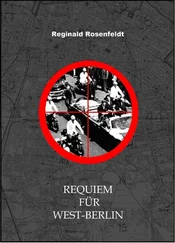Isaiah Berlin - Russian Thinkers
Здесь есть возможность читать онлайн «Isaiah Berlin - Russian Thinkers» весь текст электронной книги совершенно бесплатно (целиком полную версию без сокращений). В некоторых случаях можно слушать аудио, скачать через торрент в формате fb2 и присутствует краткое содержание. Год выпуска: 0101, Жанр: Старинная литература, на русском языке. Описание произведения, (предисловие) а так же отзывы посетителей доступны на портале библиотеки ЛибКат.
- Название:Russian Thinkers
- Автор:
- Жанр:
- Год:0101
- ISBN:нет данных
- Рейтинг книги:3 / 5. Голосов: 1
-
Избранное:Добавить в избранное
- Отзывы:
-
Ваша оценка:
- 60
- 1
- 2
- 3
- 4
- 5
Russian Thinkers: краткое содержание, описание и аннотация
Предлагаем к чтению аннотацию, описание, краткое содержание или предисловие (зависит от того, что написал сам автор книги «Russian Thinkers»). Если вы не нашли необходимую информацию о книге — напишите в комментариях, мы постараемся отыскать её.
Russian Thinkers — читать онлайн бесплатно полную книгу (весь текст) целиком
Ниже представлен текст книги, разбитый по страницам. Система сохранения места последней прочитанной страницы, позволяет с удобством читать онлайн бесплатно книгу «Russian Thinkers», без необходимости каждый раз заново искать на чём Вы остановились. Поставьте закладку, и сможете в любой момент перейти на страницу, на которой закончили чтение.
Интервал:
Закладка:
Lenin's scathing reference to the similarity of Turgenev's views to those
of German right-wing social democrats is constantly quoted both for and
against the conception of Bazarov as a prototype of Bolshevik activists. There
is an even more extensive mass of writing on the question of whether, and
how far, Katkov managed to persuade Turgenev to amend his tert in a
'moderate' direction by darkening Bazarov's image. That Turgenev did
alter his text as a result of Katkov's pleading is certain; he may, however,
286
FATH ERS AND C H I LDREN
T urgenev was upset and bewildered by the reception of his book.
Before sending it to the printer, he had taken his usual precaution of
seeking endless advice. He read the manuscript to friends in Paris, he
altered, he modi lied, he tried to please everyone. The figure of Bazarov
suffered several transformations in successive drafts, up and down the
moral scale as this or that friend or consultant reported his impressions.
The attack from the left inflicted wounds which festered for the rest
of his life. Years later he wrote 'I am told that I am on the side of
the "fathers"- I, who in the person of Pavel Kirsanov, actually sinned
against artistic truth, went too far, exaggerated his defects to the point
of travesty, and made him ridiculous !'1 As for Bazarov, he was
'honest, truthful, a democrat to his fingertips'.1 Many years later,
Turgenev told the anarchist Kropotkin that he loved Bazarov 'very,
very much . . . I will show you my diaries-you will see how I wept
when I ended the book with Bazarov's death.'8 'Tell me honestly,'
he wrote to one of his most caustic critics, the satirist Saltykov (who
complained that the word 'nihilist' was used by reactionaries to damn
anyone they did not like), 'how could anybody be offended by being
compared to Bazarov? Do you not yourself realise that he is the most
sympathetic of all my characters�'' As for 'nihilism', that, perhaps,
was a mistake. 'I am ready to admit . . . that I had no right to give
our reactionary scum the opportunity to seize on a name, a catchword;
the writer in me should have brought the sacrifice to the citizen- I
admit the justice of my rejection by the young and of all the gibes
hurled at me . . . The issue was more important than artistic truth,
have restored some, at any rate, of the original language when the novel was
published as a book. His relations with Katkov deteriorated rapidly; Turgenev
came to look on him as a vicious reactionary and refused his proffered hand
at a banquet in honour of Pushkin in I 88o; one of his favourite habits was
to refer to the arthritis which tormented him as Katkovitis (AatlOfl.fa). On
this see N. M. Gutyar, lrJtlfl Strguviclz TurgtflttJ (Yurev, 1907), and V. G.
Bazanov, /z littraturtloi poltmiAi 6oAh godOfl (Petrozavodsk, 1 94I), pp. 46-8.
The list of 'corrections' in the text for which Katkov is held responsible is
ritually reproduced in virtually every Soviet study of Turgenev's works. But
see also A. Batyuto, 'Parizhskaya rukopis' romana I. S. Turgeneva Ottsy i
tkti', RussAaya littratura, 1 961 No 4o pp. 57-78.
1 Littralurtlyt i z.hiltisAit tJospomiflafliya, p. I S S.
t Letter to K. K. Sluchevsky, :z6 April I 86:z.
a /. S. TurgtflttJ fJ tJospomiflafliyaAII SOtJrtflltflfliAOtJ, vol. I, p. 441 .
• Letter to M . E . Saltykov-Shchedrin, I S January I 876.
•'
2.87
R U S S I AN T H IN K E R S
and I ought to have foreseen this. '1 He claimed that he shared almost
all Bazarov's views, all save those on art. 1 A lady of his acquaintance
had told him that he was neither for the fathers, nor for the children,
but was a nihilist himself; he thought she might be right. 8 Herun
had said that there had been something of Bazarov in them all, in
himself, in Belinsky, in Bakunin, in all those who in the I 84os
denounced the Russian kingdom of darkness in the name of the west
and science and civilisation.' Turgenev did not deny this either. He
did, no doubt, adopt a different tone in writing to different correspondents. When radical Russian students in Heidelberg demanded clarification of his own position, he told them that 'if the reader does not love Bazarov, as he is-coarse, heartless, ruthlessly dry and brusque • . . the
fault is mine; I have not succeeded in my task. But to "dip him in
syrup" (to use his own expression)-that I was not prepared to do . . . I
did not wish to buy popularity by this sort of concession. Better lose a
battle (and I think I have lost this one), than win it by a trick.'11 Yet
to his friend the poet Fet, a conservative landowner, he wrote that he
did not himself know if he loved Bazarov or hated him. Did he mean
to praise or denigrate him? He did not know.8 And this is echoed
eight years later: 'My pei'S(Jnal feelings [towards Bazarov] were
confused (God only knows whether I loved him or hated him) !'7 To
the liberal Madame Filosofova he wrote, 'Bazarov is my beloved child;
on his account I quarrelled with Katkov . . . Bazarov, that intelligent,
heroic man-a caricature? !' And he added that this was 'a senseless
charge'.8
He found the scorn of the young unjust beyond endurance. He
wrote that in the summer of I 862 'despicable generals praised me, the
young insulted me'. 8 The socialist leader Lavrov reports that he bitterly
complained to him of the injustice of the radicals' change of attitude
towards him. He returns to this in one of his late Ponns in Prost:
'Honest souls turned away from him. Honest faces grew red with
1 ibid.
1 Liltrotumyt i zhittis �it rJospDmittoniyo, p. 1 55.
8 ibid., P· I 57.
' 'Eshche raz Bazarov', 8o6ronit sochintnii, vo]. zo, pp. 3 3 5-50.
6 Letter to K. K. Sluchevsky, z6 April I 86z.
8 Letter of 1 8 April I 86z.
7 Letter to I. P. Borisov, 4 January I 87o.
8 Letter of 30 August I 874.
11 Letter to Marko Vovchok (Mme Markovich}, z7 August I 8liz.
288
FATHERS AND C H ILDREN
indignation at the mere mention of his name. '1 This was not mere
wounded amour propre: He suffered from a genuine sense of having
got himself into a politically false position. All his life he wished to
march with the progressives, with the party ofliberty and protest. But,
in the end, he could not bring himself to accept their brutal contempt
for art, civilised behaviour, for everything that he held dear in Eur�
pean culture. He hated their dogmatism, their arrogance, their
destructiveness, their appalling ignorance of life. He went abroad,
lived in Germany and France, and returned to Russia only on flying
visits. In the west he was universally praised and admired. But in the
end it was to Russians that he wished to speak. Although his popularity
with the Russian public in the I 86os, and at all times, was very great,
it was the radicals he most of all wanted to please. They were hostile
or unresponsive.
His next novel, Smoke, which he began immediately after the
publication of Fathers and Children, was a characteristic attempt to
staunch his wounds, to settle his account with all his opponents. It
was published five years later, in I 867, and contained a biting satire
directed at both camps: at the pompous, stupid, reactionary generals
and bureaucrats, and at the foolish, shallow, irresponsible left-wing
talkers, equally remote from reality, equally incapable of remedying
the ills of Russia. This provoked further onslaughts on him. This time
Читать дальшеИнтервал:
Закладка:
Похожие книги на «Russian Thinkers»
Представляем Вашему вниманию похожие книги на «Russian Thinkers» списком для выбора. Мы отобрали схожую по названию и смыслу литературу в надежде предоставить читателям больше вариантов отыскать новые, интересные, ещё непрочитанные произведения.
Обсуждение, отзывы о книге «Russian Thinkers» и просто собственные мнения читателей. Оставьте ваши комментарии, напишите, что Вы думаете о произведении, его смысле или главных героях. Укажите что конкретно понравилось, а что нет, и почему Вы так считаете.










